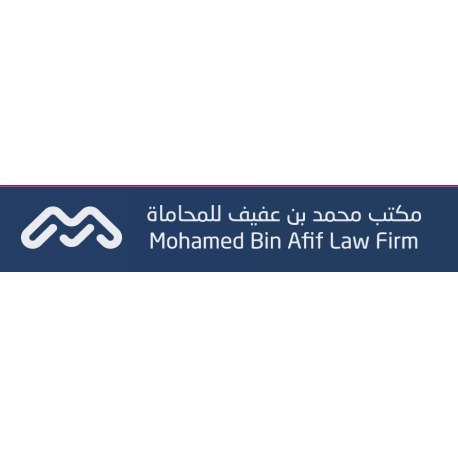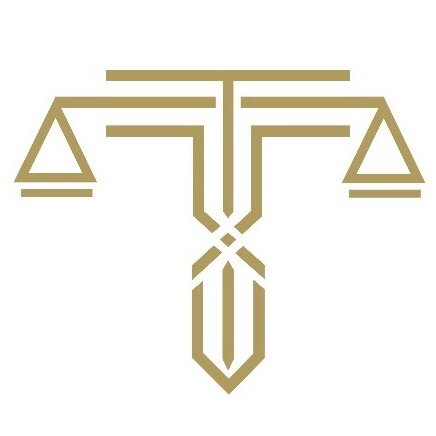Best Natural Resources Lawyers in Jeddah
Share your needs with us, get contacted by law firms.
Free. Takes 2 min.
List of the best lawyers in Jeddah, Saudi Arabia
About Natural Resources Law in Jeddah, Saudi Arabia
Jeddah, a key city in the Kingdom of Saudi Arabia, is strategically located along the Red Sea, making it a significant hub for various natural resources. Natural resources in the region include oil, gas, minerals, and water, which play a crucial role in the local and national economy. The legal framework governing these resources is comprehensive, focusing on sustainable management and exploitation to ensure long-term economic benefits while preserving environmental integrity. This framework provides regulations and guidelines for exploration, extraction, and utilization, often aligning with the broader Saudi Vision 2030 goals centered on diversifying the economy and enhancing environmental stewardship.
Why You May Need a Lawyer
Legal assistance in the field of natural resources can be essential for several reasons. Businesses planning to engage in resource extraction may require a lawyer to navigate the complex approval processes and ensure compliance with national regulations. Property owners might seek legal counsel to resolve disputes over resource rights or usage. Environmental issues often require legal intervention, particularly when a project impacts protected areas or communities. Investors also need legal advice to conduct due diligence and understand the liabilities and opportunities associated with natural resource investments.
Local Laws Overview
In Jeddah, as in the rest of Saudi Arabia, several laws and regulations oversee the management and use of natural resources. Key laws include the Mining Investment Law, which outlines requirements for obtaining mining licenses and environmental considerations; the Saudi Petroleum Law, governing extraction and production of oil and gas; and water laws focusing on conservation, distribution, and usage rights. Additionally, environmental protection laws impose strict guidelines to mitigate the impact of natural resource activities on the environment, emphasizing the balance between economic development and ecological sustainability.
Frequently Asked Questions
What are the main natural resources in Jeddah?
The main natural resources in Jeddah include oil, gas, minerals, and water. The Red Sea's proximity also provides opportunities for fishing and marine resources.
How does the Saudi Vision 2030 influence natural resources law?
Saudi Vision 2030 aims to diversify the economy, reduce dependency on oil, and promote sustainable practices. This influences natural resources law by encouraging regulations that support renewable energy projects and sustainable resource management.
What is required to obtain a mining license in Jeddah?
To obtain a mining license, applicants must comply with the Mining Investment Law, which involves submitting detailed project proposals, environmental impact assessments, and financial guarantees to the Ministry of Industry and Mineral Resources.
Are there specific environmental regulations governing resource extraction?
Yes, there are stringent environmental regulations that require companies to conduct environmental impact assessments, implement mitigation measures, and ensure that operations comply with national and local environmental standards.
Can foreign companies invest in natural resource projects in Jeddah?
Yes, foreign companies can invest, but they must comply with specific regulations and obtain necessary approvals from the Saudi Arabian General Investment Authority and relevant industry bodies.
What legal issues might arise in water resource management?
Legal issues in water resource management can include disputes over usage rights, compliance with conservation policies, and resolution of cross-border water resource conflicts.
Who regulates the oil and gas industry in Jeddah?
The Ministry of Energy regulates the oil and gas industry, setting policies, ensuring compliance with national laws, and overseeing operational standards.
What role do local communities play in natural resource projects?
Local communities are sometimes consulted in the planning stages to understand potential social impacts, and there are regulations that mandate community engagement and benefits-sharing in resource projects.
Is it necessary to conduct due diligence before investing in natural resources?
Yes, conducting due diligence is crucial to assess the legal compliance, environmental risks, and financial viability of the resource project.
How can disputes in natural resources be resolved?
Disputes can be resolved through negotiation, arbitration, or litigation, depending on the nature of the conflict and the parties involved. Legal counsel can provide guidance on the most effective resolution strategy.
Additional Resources
Several organizations can provide support and guidance for individuals and companies dealing with natural resources. The Ministry of Industry and Mineral Resources oversees mining regulations, while the Ministry of Energy manages oil and gas policies. The Saudi Arabian General Investment Authority provides resources for foreign investors. Environmental concerns can be addressed through the National Center for Environmental Compliance, which offers frameworks for adhering to environmental laws.
Next Steps
If you require legal assistance in the field of natural resources in Jeddah, the first step is to consult with a qualified legal professional or law firm specializing in natural resource law. It's advisable to gather all relevant documentation related to your case and be prepared to discuss your objectives and concerns. Engaging with a lawyer can help you navigate complex regulatory frameworks, ensure compliance, and address any challenges or disputes effectively.
Lawzana helps you find the best lawyers and law firms in Jeddah through a curated and pre-screened list of qualified legal professionals. Our platform offers rankings and detailed profiles of attorneys and law firms, allowing you to compare based on practice areas, including Natural Resources, experience, and client feedback.
Each profile includes a description of the firm's areas of practice, client reviews, team members and partners, year of establishment, spoken languages, office locations, contact information, social media presence, and any published articles or resources. Most firms on our platform speak English and are experienced in both local and international legal matters.
Get a quote from top-rated law firms in Jeddah, Saudi Arabia — quickly, securely, and without unnecessary hassle.
Disclaimer:
The information provided on this page is for general informational purposes only and does not constitute legal advice. While we strive to ensure the accuracy and relevance of the content, legal information may change over time, and interpretations of the law can vary. You should always consult with a qualified legal professional for advice specific to your situation.
We disclaim all liability for actions taken or not taken based on the content of this page. If you believe any information is incorrect or outdated, please contact us, and we will review and update it where appropriate.















